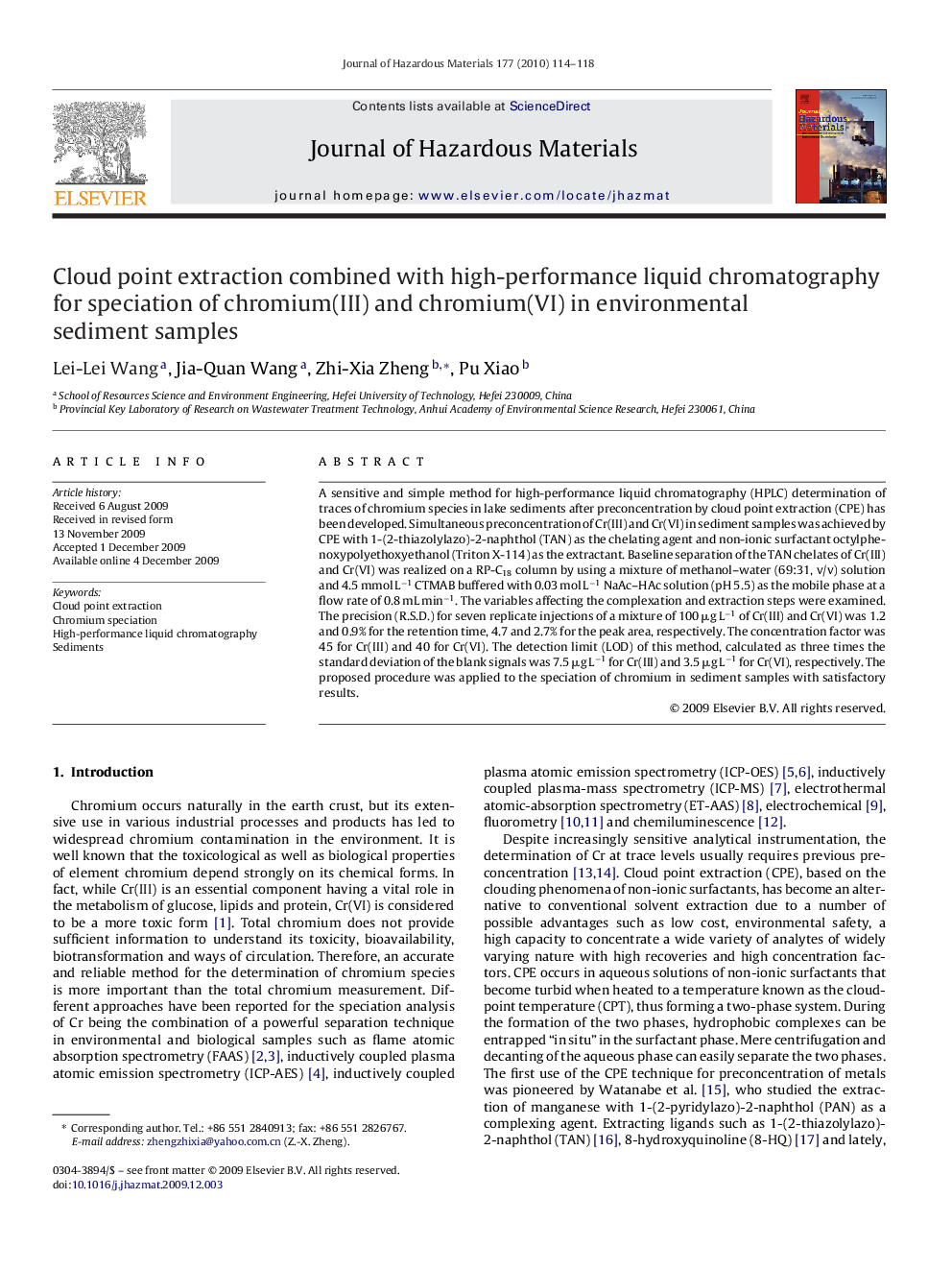| Article ID | Journal | Published Year | Pages | File Type |
|---|---|---|---|---|
| 580838 | Journal of Hazardous Materials | 2010 | 5 Pages |
Abstract
A sensitive and simple method for high-performance liquid chromatography (HPLC) determination of traces of chromium species in lake sediments after preconcentration by cloud point extraction (CPE) has been developed. Simultaneous preconcentration of Cr(III) and Cr(VI) in sediment samples was achieved by CPE with 1-(2-thiazolylazo)-2-naphthol (TAN) as the chelating agent and non-ionic surfactant octylphenoxypolyethoxyethanol (Triton X-114) as the extractant. Baseline separation of the TAN chelates of Cr(III) and Cr(VI) was realized on a RP-C18 column by using a mixture of methanol-water (69:31, v/v) solution and 4.5 mmol Lâ1 CTMAB buffered with 0.03 mol Lâ1 NaAc-HAc solution (pH 5.5) as the mobile phase at a flow rate of 0.8 mL minâ1. The variables affecting the complexation and extraction steps were examined. The precision (R.S.D.) for seven replicate injections of a mixture of 100 μg Lâ1 of Cr(III) and Cr(VI) was 1.2 and 0.9% for the retention time, 4.7 and 2.7% for the peak area, respectively. The concentration factor was 45 for Cr(III) and 40 for Cr(VI). The detection limit (LOD) of this method, calculated as three times the standard deviation of the blank signals was 7.5 μg Lâ1 for Cr(III) and 3.5 μg Lâ1 for Cr(VI), respectively. The proposed procedure was applied to the speciation of chromium in sediment samples with satisfactory results.
Related Topics
Physical Sciences and Engineering
Chemical Engineering
Chemical Health and Safety
Authors
Lei-Lei Wang, Jia-Quan Wang, Zhi-Xia Zheng, Pu Xiao,
